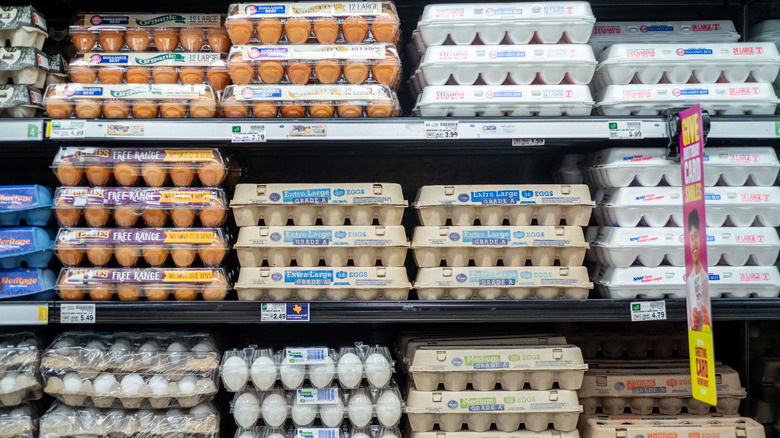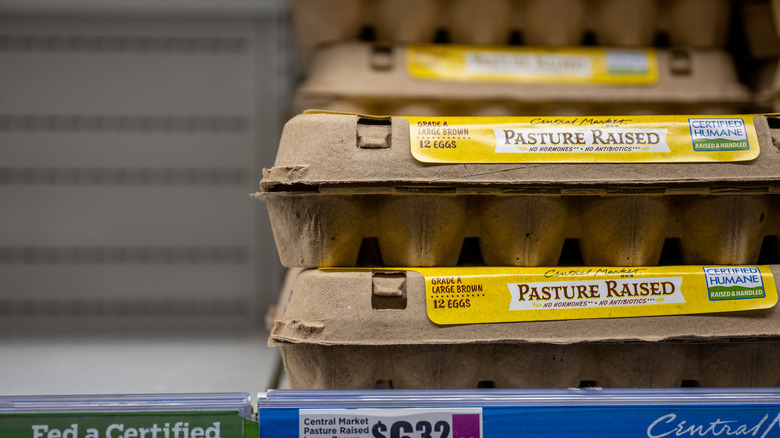The Ethical Reason You Should Never Buy Eggs On Sale
Historically, eggs are a cheap, easily accessible source of protein. Well, maybe not today, as egg prices continue to skyrocket all across the country. But this has not been the norm. Eggs are versatile, delicious, and easy to cook. Whether it's breakfast, lunch, or dinner, eggs can usually hit the spot and not hurt your wallet. Plus, let's be honest. There is nothing better than breakfast for dinner. But there is something to say about eggs being too cheap, like suspiciously cheap (via Bloomberg).
Today, shoppers can feel overwhelmed by the variety of eggs for sale at the grocery store. Some people are confused by labels like "cage-free," "free-range," "pasture-raised," and "organic." More often than not, people buy what they know. If they grew up eating generic eggs in pink styrofoam containers, they will likely continue to buy them. But what's wrong with cheap eggs? Isn't the goal of grocery shopping to save as much money as humanely possible, like you're competing for a guest appearance on "Extreme Couponing"?
While saving money on groceries is fiscally responsible, you should think twice about saving a few dollars on a dozen eggs. The Humane League shared shocking insights on factory-farmed chickens, forced to live in unbearably small cages with multiple hens inside. Each chicken has 67 to 86 square inches of space per the 2017 United Egg Producers guidelines. These are the cheap, conventional eggs overflowing on grocery store shelves.
Cheaper isn't always better
Cage-free eggs are a step better than caged, but this is still not a great environment for chickens (via Humane League). Cage-free does not mean chickens get access to the outdoors, they are usually living in a dark, overcrowded, windowless room. Free-range eggs are another step up the ladder with significantly better conditions than conventional eggs. These chickens have some access to the outdoors, but the spaces are still usually small. Pasture-raised eggs are what you want to be buying and consuming if you can afford them. They have ample access to the outdoors, are mainly fed an organic diet, roam fields with vegetation to graze, and live a normal chicken life. But, this ideal environment is more expensive to upkeep than cages, so the price is higher (via The Healthy).
There is also a major nutritional difference (according to Certified Humane) between conventional eggs and pasture-raised. Researchers at Pennsylvania State University found that one pasture-raised egg contains twice as much omega-3 fat, three times more Vitamin D, four times more vitamin E, and seven times more beta-carotene than conventional eggs.
But, of course, this difference comes with a hefty price jump, especially in today's inflated egg market. If you do choose to buy free-range and pasture-raised eggs, you are letting the farmers know that this is what consumers want, a better environment for chickens and nutritionally rich eggs. Hopefully, one day, at a price everyone can afford.

